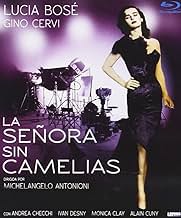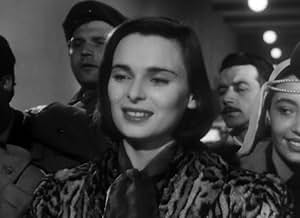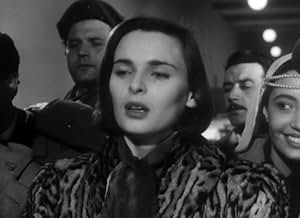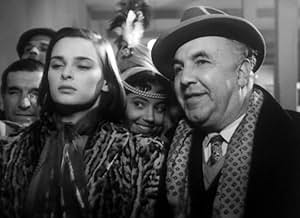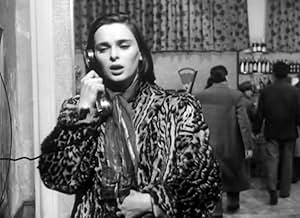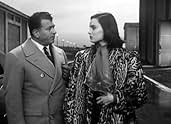Clara Manni (Lucia Bosé), a shop clerk, came to Rome in order to become an actress. She was discovered by Gianni (Andrea Checchi), a film producer. Now it seems that she's hit the big time. The film she's making now is bound to be a success. She's a star on the rise. Gianni, the producer, is in love with her, and rushes Clara into marriage with the complicity of her parents. She's not really in love with him but marries him all the same. Marriage at the time was a kind of moral (if not financial) safety certificate. This, by the time (1953), was almost mandatory for women.
The marriage is not successful and new roads, provided by chance, offer themselves to her. Clara is a sensitive woman, capable of deep emotions - she gives all of herself in whatever she does. But appearances seem to be more important than feelings in this world. In the end of the film, the tears she sheds while she's smiling, represent her surrender.
Lucia Bosé is superb in her role. Clara's need for love, her hesitations and hopes, are subtly shown - her acting is at the same time minimalistic and full of passion. More than the world of cinema, Antonioni portrays the world in which women had to live at that time. His look is deep and compassionate.
See a very beautiful and sad film about a "lady without camelias" - she lived, loved, suffered, and learned - in the end the flowers were gone and nothing remained but a smile among tears.

![Trailer [OV]](https://m.media-amazon.com/images/M/MV5BMmVmZGM2NWQtMWZkNS00ZmI5LWEwMjctOTE2Njc4MjRiYmFlXkEyXkFqcGdeQXRyYW5zY29kZS13b3JrZmxvdw@@._V1_QL75_UX500_CR0)
